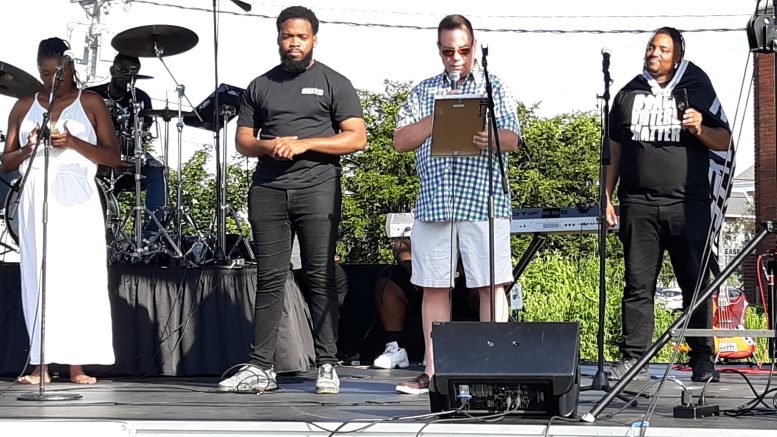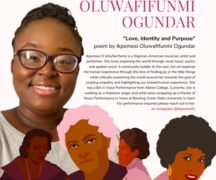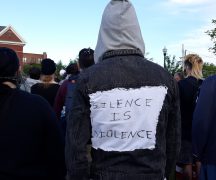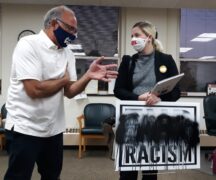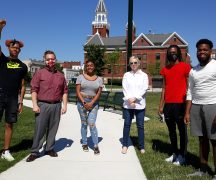By JAN LARSON McLAUGHLIN
BG Independent News
The City of Bowling Green has officially recognized independence day for African Americans.
In the midst of the Juneteenth celebration on Wooster Green Saturday, the music was paused as Mayor Mike Aspacher came to the stage to read a proclamation declaring the importance of the day – and urging citizens to become more aware of the history behind the celebration.
(Another story about the Juneteenth celebration in Wooster Green will appear Monday.)
The mayor’s proclamation was a meaningful moment for those gathered to honor the day.
“It acknowledges that this is important – like July 4 is a holiday. I love that the mayor made this a holiday,” said Juneteenth volunteer Kristina Coleman.
The dedication was significant to Angelo Brown, of Bowling Green.
“I think it shows that the community is behind the movement. It’s very positive,” Brown said.
Last week, President Joe Biden declared Juneteenth a federal holiday.
Prior to going on stage, Aspacher talked about his reasoning for the proclamation.
“This is really important that Bowling Green recognizes these events,” the mayor said.
That recognition extends to supporting BRAVE (Black Rights, Activism, Visibility and Equity) and contributions of the Black community. The public statement was just one of several steps the city has taken to become a more welcoming place for all, Aspacher said.
“We are committed to this amazing event and to making Bowling Green a more inclusive community,” he said.
From the stage, the mayor looked over Wooster Green – with people gathered for music, food and children’s activities.
“When we envisioned this meeting space, this is exactly what we envisioned being here,” Aspacher said.
The mayor’s proclamation noted the origin of the Juneteenth celebrations.
While the Emancipation Proclamation declared the slaves in Confederate territories free as of Jan. 1, 1863, it was two and a half years before many were actually freed.
Juneteenth marks the day when federal troops arrived in Galveston, Texas, in 1865 to ensure that all enslaved people be freed.
The Emancipation Proclamation issued by President Abraham Lincoln on Jan. 1, 1863, had established that all enslaved people in Confederate states in rebellion against the Union “shall be then, thenceforward, and forever free.”
But in reality, the Emancipation Proclamation didn’t instantly free any enslaved people. The proclamation only applied to places under Confederate control and not to slave-holding border states or rebel areas already under Union control.
In Texas, slavery had continued as the state experienced no large-scale fighting or significant presence of Union troops. Many slave owners from outside Texas had moved there, as they viewed it as a safe haven for slavery.
After the war came to a close in the spring of 1865, U.S. General Gordon Granger’s arrival in Galveston that June signaled freedom for an estimated 250,000 enslaved people in Texas.
But still, emancipation didn’t happen overnight for all slaves. In some cases the slave owners withheld the information until after harvest season.
But for others, celebrations broke out among newly freed Black people, and Juneteenth was born. That December, slavery in America was formally abolished with the adoption of the 13th Amendment.
So June 19 has a special meaning to many Americans, and has been celebrated by the African American community for more than 150 years.
The proclamation read by Aspacher proclaims June 19 as Juneteenth in the city, pledges to celebrate African American culture, and urges all citizens to become more aware of the significance of this celebration in African American history and in the heritage of the nation and city.

